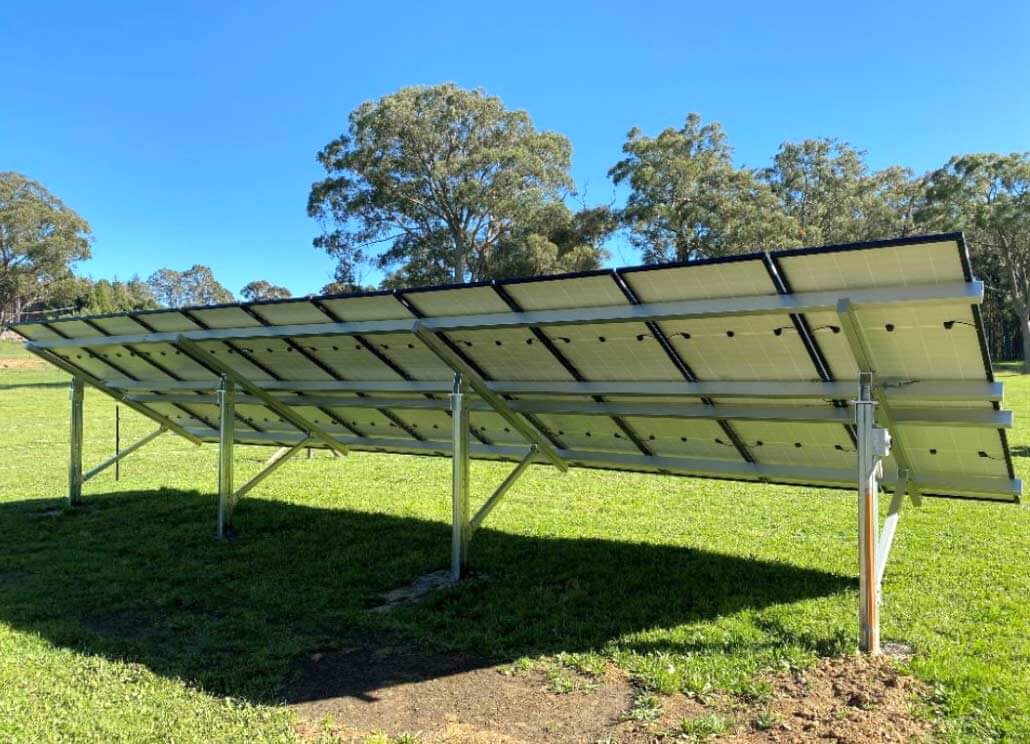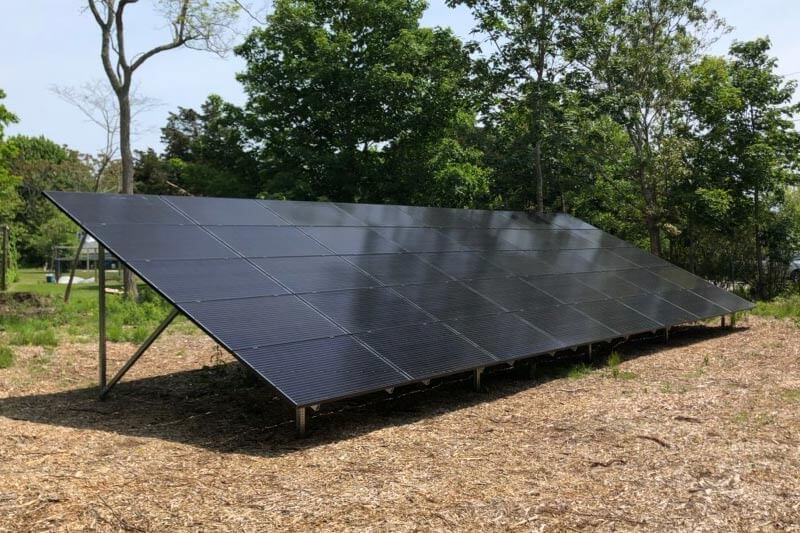Home Does A Ground Mounted Solar System Need A Permit?
Does A Ground Mounted Solar System Need A Permit?
When installing solar panels at your home, it’s important to ensure you follow all the building codes and local regulations. Depending on the type of solar system you select, you may need to secure a permit.
You may need a permit to install a ground-mounted solar system, depending on your local council and the size of the system.
As a general rule, if the solar system is less than 9m2, less than 4m in height, not within a listed building, and not visible from the highway, you will not need a permit to install it.
Permitted development laws allow you to install solar systems in your home without the need for a permit.

Table of Contents
ToggleConditions Of Solar System Installations When You Don’t Need A Permit
If your solar system meets the following conditions, you will not need a permit to install it.
Roof Mounted Installations
- The solar panel array is not 200m over the roof
- The solar panel array is not higher than the highest part of the roof, excluding chimneys.
- If the solar system is in a conservation area, it must not be visible from the highway.
- It should not affect the appearance of the building.
- The solar panel array is installed on barns, garages, and sheds around a home.
Ground Mounted Installations
- Must be less than 4m in height.
- The solar mounting must be 5m away from the property boundary.
- Not visible from the highway if it is in a conservation area.
Solar Panels Installed On Canopies And Carports
- Canopies should have two sides open
- The carport or canopy should not exceed further from the house.
- Coverage of up to 30m2.
- Less than 4m in height.
- The carports should be for residential purposes.
- The canopy should not take up more than 50% of the available space.
Types Of Ground Mounted Solar Systems
Standard Ground Mount
A standard ground-mounted solar system consists of a tilted steel frame anchored to the ground. Solar panel installation then occurs once the steel frame is in place.
Pros Of A Standard Ground Mount
- Affordable
- Easy to install and maintain.
- You have a range of mounting options.
Cons Of A Standard Ground Mount
- Installation angle may limit the amount of sunshine received as the sun moves across the sky in the day.
- Since it is on the ground, animals can damage the solar panels easily.

Pole Mounted System
You can also mount your ground-mounted solar system on a pole. The pole has a rectangular frame onto which you install solar panels.
Make sure to install a tracking system if you choose to mount your solar panels on a pole. It tilts the solar panels according to the direction of the sun. Tracking the sun allows the panels to absorb maximum sunshine and produce electricity effectively.
Pros Of A Pole Mounted System
- Tracking allows the panels to absorb more sunshine throughout the day.
- The solar system occupies little space.
- Provides higher clearance from the ground to enhance the effectiveness of the solar panels. The nearer solar panels are to the ground and foliage, the hotter they get and the less electricity they produce.
Cons Of A Pole Mounted System
- More expensive to install
- Needs more maintenance
- It needs electricity to operate the tracking system. It makes your solar system less effective and efficient.
Why Choose A Ground Mounted Solar System
- Safety. No one has to work from the roof of your home.
- There are fewer obstructions on ground-mounted solar panels.
- You do not have to worry about the angle and orientation of your roof.
- The size of your roof does not affect the size of your ground-mounted solar system.
- You can add tracking capabilities to enhance the output of a ground-mounted solar system.
- You can move the installation to another area.
- Ground-mounted solar installation does not affect the appearance of your home.
- Easy to clean and maintain.
Disadvantages Of Ground-Mounted Solar System
- Installation of ground-mounted solar panels is more expensive than roof-mounted solar panels.
- The tracking device installed on the ground-mounted solar panels uses electricity. It reduces the effectiveness of installing solar panels.
- It takes up space that you can use for other things.
- Damage by animals and people due to their exposure.
Factors To Consider Before Installing A Ground-Mounted Solar System
- Ensure you have appropriate conditions for the installation of a ground-mounted solar system. You will need an open portion of the ground without shading.
- You need sufficient space for the number of solar panels you want to install.
- Size of the property to power with a ground-mounted solar system. A ground-mounted solar system is appropriate for large properties.
- Electricity consumption. Ground-mounted solar systems produce more electricity than roof-mounted solar panels.
- Cleaning and maintenance. Ground-mounted solar systems are easy to access. You can clean, repair and maintain with ease.
FAQ's
You will incur most of the extra cost of installing a ground-mounted solar system when building a frame to install the solar panels.
The price of the frame of roof-installed solar panels is much lower. Hence, lower installation costs.
Also, the tracking device installed in the ground-mounted system is expensive to buy. It also uses a lot of electricity, which reduces how much you save for using solar power.
Additionally, solar installers will charge you more to install a ground-mounted solar system.
You will pay about $700 per kW to install a ground-mounted solar system. It includes the cost of labor and materials. For a 6kW solar system, you will pay $4,200-$4500 to install a ground-mounted solar system to power your home.
Compare Solar Panel Quotes
Table of Contents
Toggle









